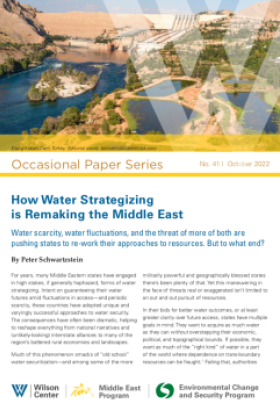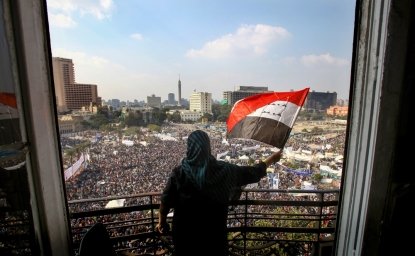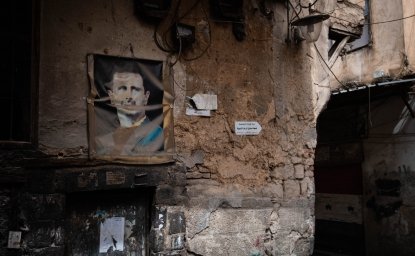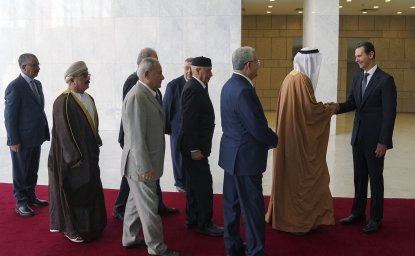How Water Strategizing is Remaking the Middle East



For years, many Middle Eastern states have engaged in high-stakes, if generally haphazard, forms of water strategizing. Intent on guaranteeing their water futures amid fluctuations in access—and periodic scarcity, these countries have adopted unique and varyingly successful approaches to water security. Upstream powers, such as Turkey and Iran, exercise their power by building electrified dams, reducing flow to downstream states. Meanwhile, resource rich states have relied on desalination technology to fulfill their water needs. However, the expansion of dams and desalination reflects outdated thinking in regard to MENA’s water challenges, while resource poor downstream states face fewer options for dealing with increasing scarcity. MENA’s best hope may lie in increasing transnational cooperation on water to avoid conflict. Some deals have already taken place, but the region faces a crossroads in dealing with a tense water future.
Author

Environmental Journalist

Middle East Program
The Wilson Center’s Middle East Program serves as a crucial resource for the policymaking community and beyond, providing analyses and research that helps inform US foreign policymaking, stimulates public debate, and expands knowledge about issues in the wider Middle East and North Africa (MENA) region. Read more


Environmental Change and Security Program
The Environmental Change and Security Program (ECSP) explores the connections between environmental change, health, and population dynamics and their links to conflict, human insecurity, and foreign policy. Read more

Explore More
Browse Insights & Analysis
Living Interesting Lives: Daily Life Amidst Coup D’etat and Revolution

Reactions from MENA Governments on the Fall of the Assad Regime

